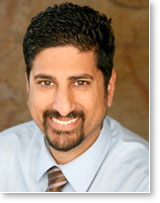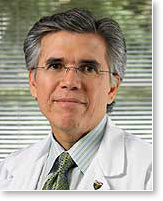Diabetes
DIABETES: Improved Symptoms
 Recent research on diabetes may have significant impact for African Women. The number of diabetes sufferers in Africa remains uncertain but the International Diabetes Foundation (IDF) estimate from 2000 puts the figure at 7.5 million diabetic adults between 20 and 79 years of age.
Recent research on diabetes may have significant impact for African Women. The number of diabetes sufferers in Africa remains uncertain but the International Diabetes Foundation (IDF) estimate from 2000 puts the figure at 7.5 million diabetic adults between 20 and 79 years of age.
Today this figure would be much higher and the WHO (World Health Organization) and the IDF estimate that the diabetes population will double over the next twenty five years in Africa.
In the United States, African American women greatly improved their condition of dyslipidemia through the practice of the Transcendental Meditation technique, according to a study conducted by researchers at Maharishi University of Management’s Institute for Natural Medicine and Prevention, Morehouse School of Medicine in Atlanta, and Howard University Hospital and College of Medicine in Washington, DC.
Helping African American women with diabetes
by DR. CAROLYN KING on APRIL 8, 2010
 African American women with diabetes greatly reduced their stress levels and improved their condition of “dyslipidemia” through the practice of the Transcendental Meditation technique, according to a first-ever study we presented during the American Public Health Association’s Annual Meeting and Exposition in Philadelphia last November.
African American women with diabetes greatly reduced their stress levels and improved their condition of “dyslipidemia” through the practice of the Transcendental Meditation technique, according to a first-ever study we presented during the American Public Health Association’s Annual Meeting and Exposition in Philadelphia last November.
Dyslipidemia is the most common complication of diabetes, characterized by low HDL (good) cholesterol and high triglyceride levels, which increase the risk of cardiovascular disease (CVD).
The 12-month pilot study involved 49 diabetic African American women, aged between 55 and 85 years, who were randomly assigned to a Transcendental Meditation program group or to a health-education group focusing on diet and exercise.
The Transcendental Meditation group showed a 29 percent greater increase in HDL (good) cholesterol and a 20 percent greater drop in triglycerides than subjects in the diet and exercise group at the end of the trial period.
The study was conducted by researchers at Morehouse School of Medicine in Atlanta, Howard University Hospital and College of Medicine in  Washington, D.C. and the Institute for Natural Medicine and Prevention at Maharishi University of Management in Fairfield, Iowa.
Washington, D.C. and the Institute for Natural Medicine and Prevention at Maharishi University of Management in Fairfield, Iowa.
This research suggests that stress reduction with the Transcendental Meditation program is both feasible and effective in reducing diabetic dyslipidemia in African American woman and it can be an important part of a lifestyle modification program for improving diabetic dyslipidemia and preventing CVD.
Nearly twice as many African American women suffer from CVD and diabetes as Caucasian women, and psychosocial stress contributes to the risk of diabetes and diabetes complications especially CVD. Combining the Transcendental Meditation technique with changes to diet and exercise may produce an even greater benefit.
Diabetes Questions and Answers
Can Transcendental Meditation help those suffering from diabetes?
JULY 28, 2011
Q: How can the Transcendental Meditation technique influence Type 2 diabetes, which is a biochemical problem related to the inability of the body to make or to use insulin? As a secondary consequence, when the pancreas has been overworked for decades, it starts secreting less and less insulin. Now you need more insulin, but your pancreas can’t make any more; in fact, it slowly starts to die off because it’s been overworked for years. Research published in the Archives of Internal Medicine in 2006 shows that the practice of the Transcendental Meditation technique can help during the initial stages, by lowering insulin resistance. So even though it’s true that some damage has been done to your pancreas over the years of developing diabetes, it doesn’t mean you can’t still be helped. Q: Does stress play a role in Type 2 diabetes as well? Dr. Chaudhary: Yes, for the same reason that it does in obesity. When you’re stressed you tend to have higher cortisol levels, which increases insulin resistance; you also tend to eat the wrong foods, eat excessively, and eat at night because sleep patterns tend to be off in people who are anxious. As shown by research, the Transcendental Meditation technique can help by decreasing stress and regulating sleep patterns, so the person is sleeping through the night and not eating at midnight because of stress or anxiety. Research reference: Arch Inter Med. 2006;166:1218-1224 More information: www.DoctorsOnTM.org Sandeep Chaudhary, M.D., earned a double board certification in both Internal Medicine and Pediatrics at Loma Linda University Medical School and later earned his board certification in Endocrinology at the University of California, San Diego. He is currently the Medical Director of Wellspring Endocrinology at Scripps Memorial Hospital in La Jolla, California. Robert Schneider, M.D., F.A.C.C., F.A.B.M.R., has been awarded more than $20 million in grants from the National Institutes of Health (NIH) for his pioneering research on natural approaches to heart disease. Dr. Schneider is the author of Total Heart Health and 100 medical research articles, and he has been featured in more than 1,000 media reports, including CNN Headline News, The New York Times, and Time magazine. César Molina, M.D., F.A.C.C., is Medical Director of the South Asian Heart Center at El Camino Hospital in Mountain View, CA. He is a graduate of Yale University School of Medicine and a fellow of the American College of Cardiology. Dr. Molina has recently appeared in the international edition of CNN discussing the benefits of diet and exercise in the treatment and prevention of coronary heart disease. Dr. Chaudhary: When you look at diabetes as a process of manifesting disease in several stages, in the initial stages the person develops insulin resistance. This means that your insulin is not working as efficiently as it should, and consequently your blood sugars start to rise.
Dr. Chaudhary: When you look at diabetes as a process of manifesting disease in several stages, in the initial stages the person develops insulin resistance. This means that your insulin is not working as efficiently as it should, and consequently your blood sugars start to rise. Dr. Schneider: Stress hormones such as cortisol, adrenaline and noradrenalin aggravate insulin and glucose levels. Reducing these neurohormones through the Transcendental Meditation technique helps to balance glucose and insulin in the blood. This helps to normalize metabolic syndrome and diabetes.
Dr. Schneider: Stress hormones such as cortisol, adrenaline and noradrenalin aggravate insulin and glucose levels. Reducing these neurohormones through the Transcendental Meditation technique helps to balance glucose and insulin in the blood. This helps to normalize metabolic syndrome and diabetes. Dr. Molina: Since the Transcendental Meditation technique is a stress reduction technique, and since diabetes can be worsened by both physiological and psychological stress, it makes sense that the regular practice of the Transcendental Meditation technique may improve the ability to control diabetes.
Dr. Molina: Since the Transcendental Meditation technique is a stress reduction technique, and since diabetes can be worsened by both physiological and psychological stress, it makes sense that the regular practice of the Transcendental Meditation technique may improve the ability to control diabetes.
